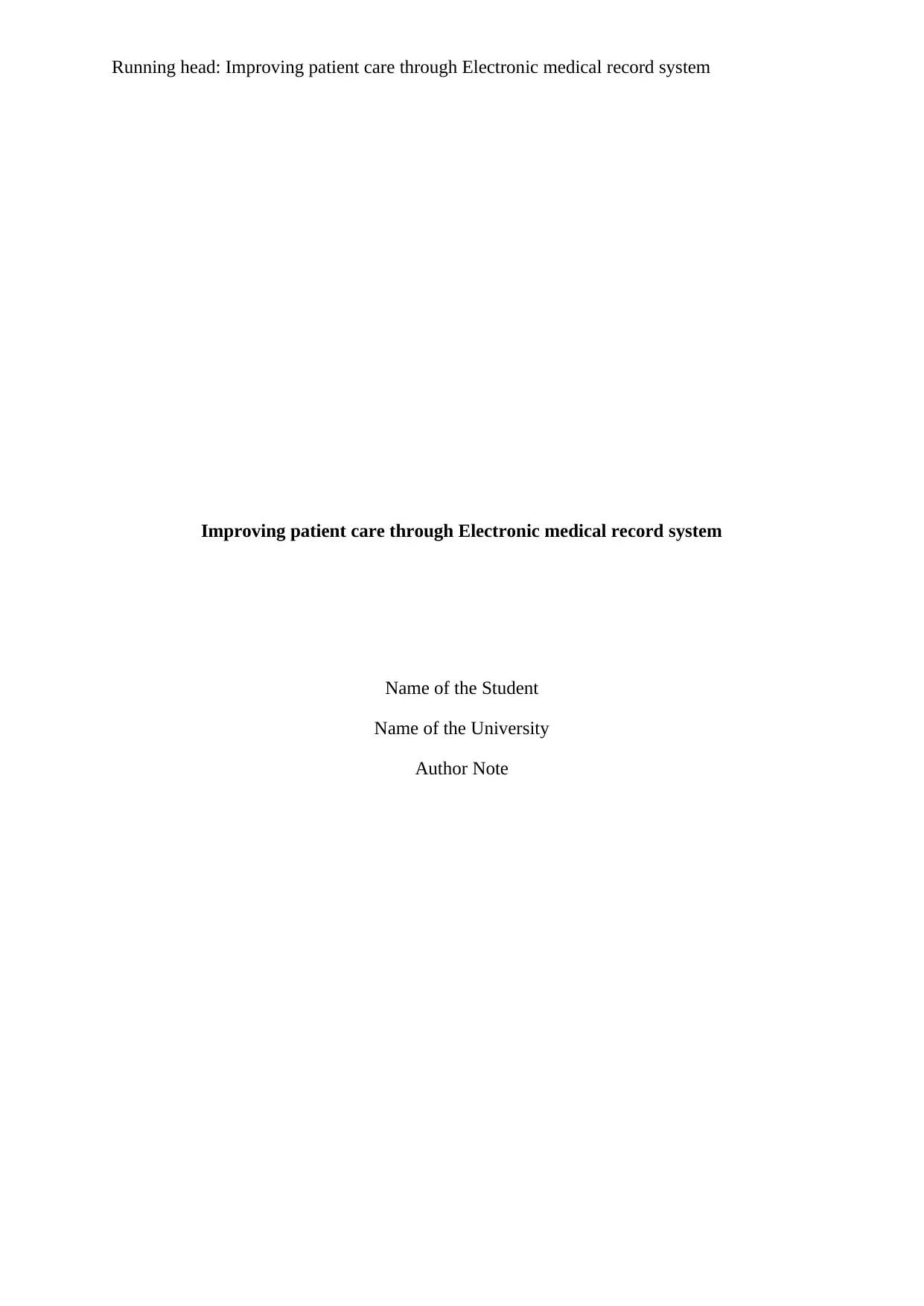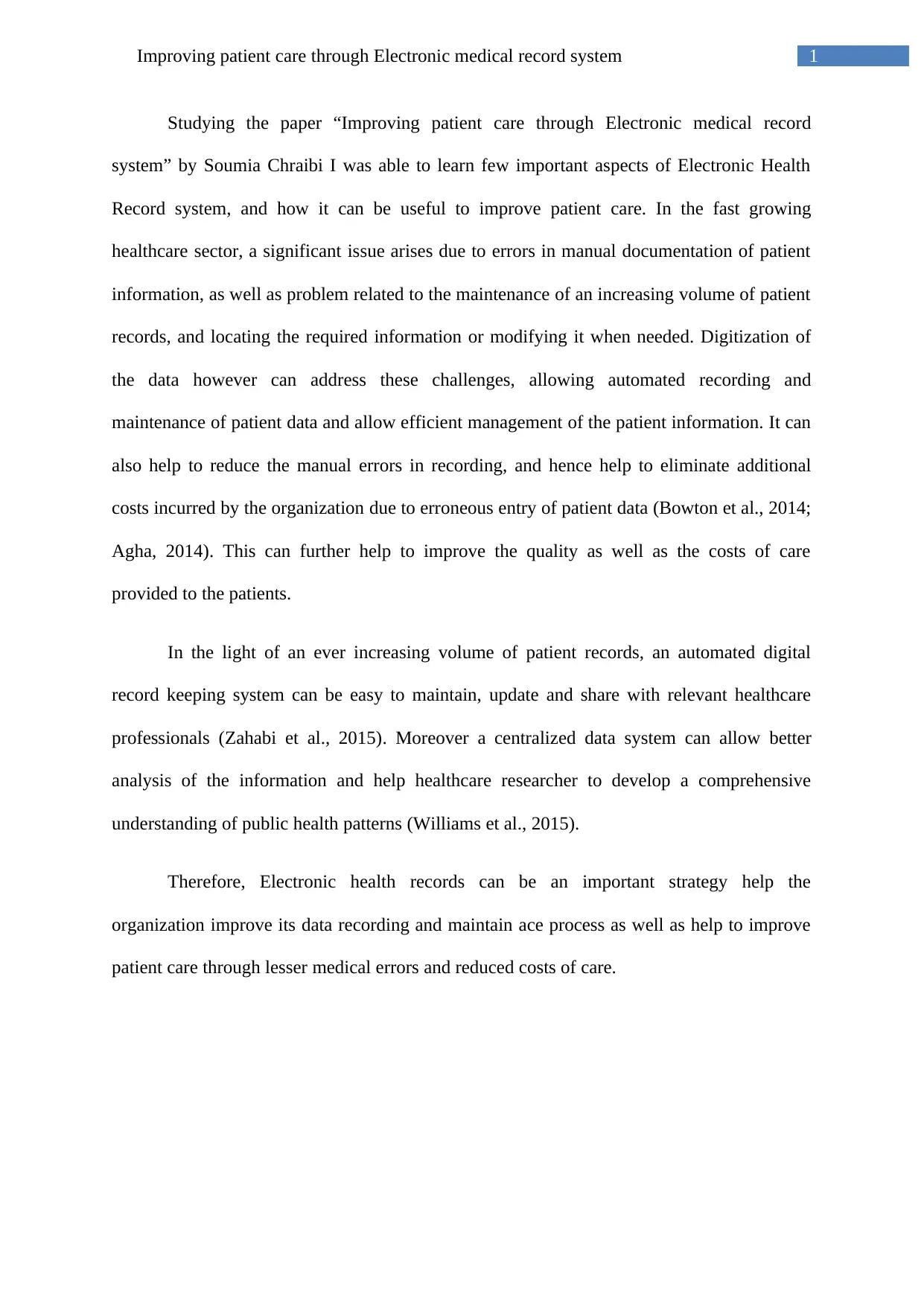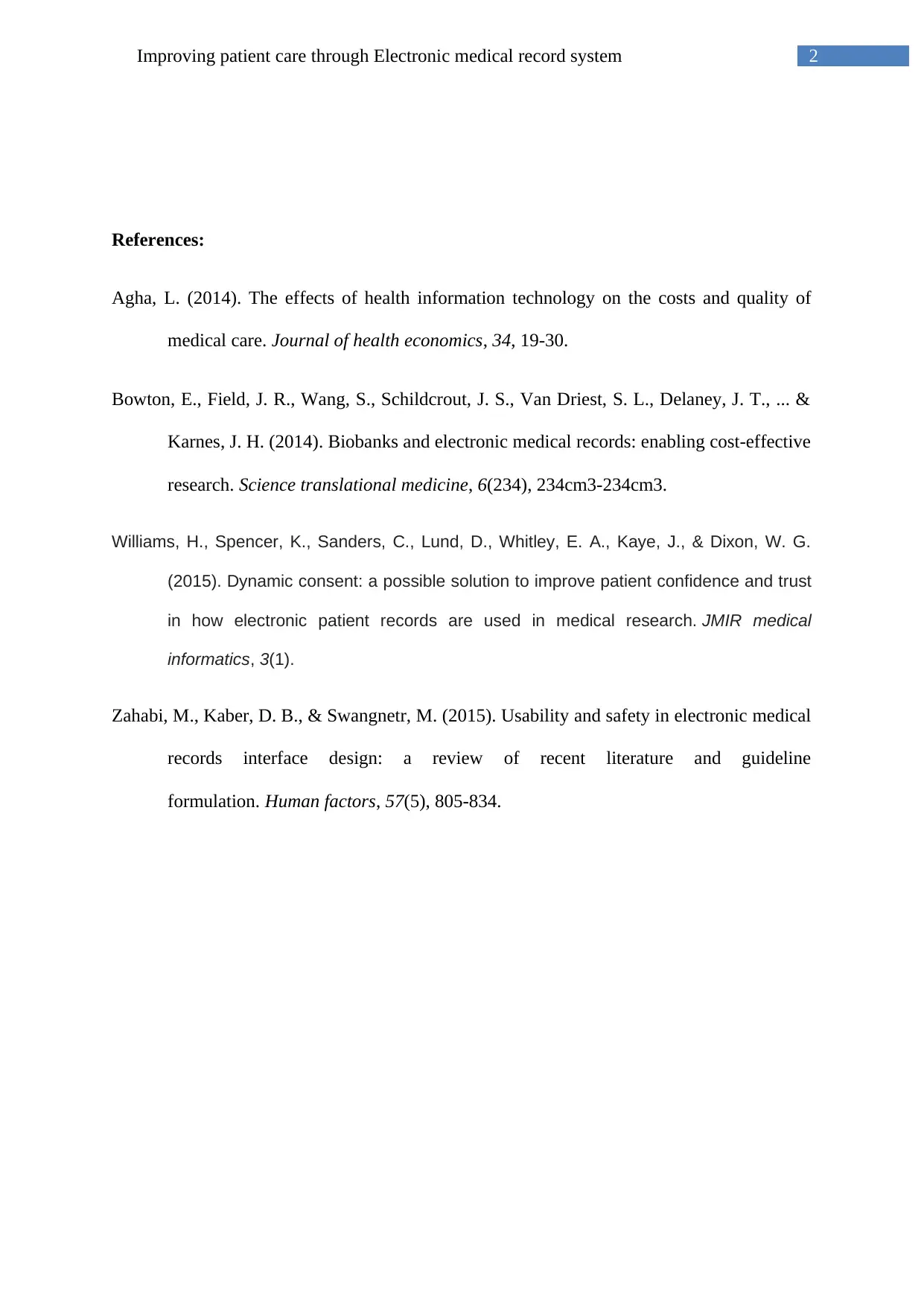DDHA 9100 Discussion: Enhancing Patient Care with Electronic Records
VerifiedAdded on 2023/06/15
|3
|540
|204
Discussion Board Post
AI Summary
This discussion board post, related to the paper "Improving patient care through Electronic medical record system," examines the benefits of Electronic Health Record (EHR) systems in modern healthcare. It highlights the challenges of manual documentation, such as errors and difficulties in managing large volumes of patient data, and how digitization can address these issues. The discussion emphasizes the potential of EHRs to reduce errors, improve data management, facilitate data analysis for public health research, and ultimately enhance the quality and cost-effectiveness of patient care. The post references several studies that support the implementation of EHRs for better healthcare outcomes.
1 out of 3










![[object Object]](/_next/static/media/star-bottom.7253800d.svg)